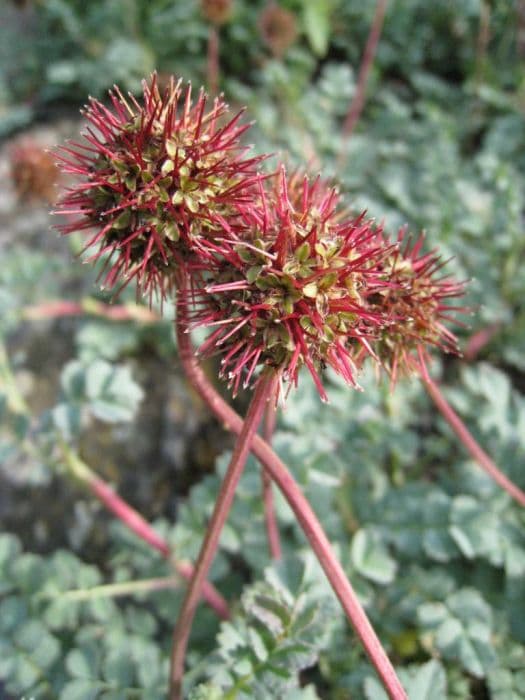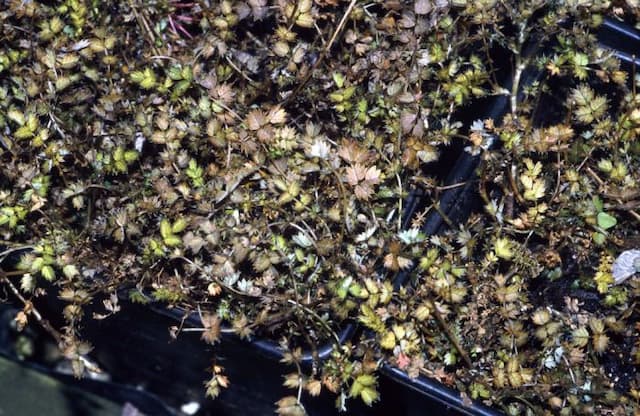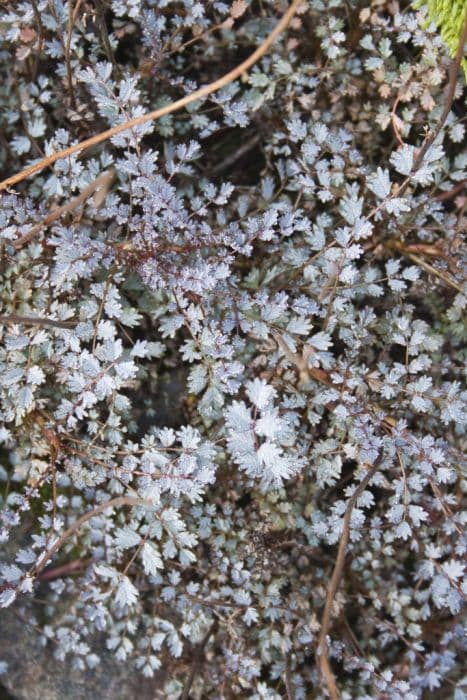Hybrid Tea Rose Rosa Raymond Blanc = 'Delnado' (HT)
![rose [Raymond Blanc]](/_next/image?url=https%3A%2F%2Fplants-admin.emdemapps.com%2Fimages%2Fplants%2F%2Fimages%2F604b635895026.png&w=3840&q=75)
ABOUT
Rosa Raymond Blanc, known commonly as a type of Hybrid Tea rose, is a cultivated flower that boasts an array of visually striking attributes. The plant produces large, showy blooms which are recognized for their classic rose shape, consisting of a high-centered bud that gracefully opens into a full, double flower. The petals are delicately arranged in concentric circles, creating a sumptuous and layered appearance. The color of the Rosa Raymond Blanc flowers is a key highlight, with a creamy white hue that can have hints of pastel pink or a soft buttery yellow, often with a gradient of shades from the outer petals moving inward toward the base. Each bloom emits a captivating fragrance that is a blend of traditional rose scent with sweet, fruity notes that can fill a garden space with its perfume. The foliage accompanying these stunning blooms is typically dark green and glossy, providing a vivid backdrop that further accentuates the flowers' purity and elegance. The leaves are often leathery in texture and have a serrated margin. The stems on which the flowers and leaves grow may feature thorns, which is characteristic of roses, providing a protective element for the plant. Rosa Raymond Blanc creates a visually impressive display, which often makes it a centerpiece in gardens and is also prized for its cut flowers that grace many arrangements and bouquets with their beauty and fragrance. It represents a classic garden rose with the aesthetics and olfactory allure typical of Hybrid Tea varieties.
About this plant
 Names
NamesFamily
Rosaceae
Synonyms
Hybrid Tea Rose
Common names
Rosa 'Delnado'.
 Toxicity
ToxicityTo humans
Hybrid Tea Rose is not known for being toxic to humans. It is generally considered safe and non-toxic. However, ingesting large quantities of any plant material may lead to gastrointestinal discomfort, including symptoms such as nausea or upset stomach. The primary concern with roses tends to be their thorns, which can cause physical injury, rather than toxicity from ingestion.
To pets
Hybrid Tea Rose is not considered toxic to pets, such as dogs and cats. It is not commonly associated with poisoning in animals. However, as with humans, ingesting large amounts of any plant can potentially cause gastrointestinal upset in pets, including symptoms like vomiting or diarrhea. The thorns of roses can also be a physical hazard to pets if they try to chew or swallow them.
 Characteristics
CharacteristicsLife cycle
Perennials
Foliage type
Deciduous
Color of leaves
Green
Flower color
Cream
Height
4-5 feet (1.2-1.5 meters)
Spread
3-4 feet (0.9-1.2 meters)
Plant type
Shrub
Hardiness zones
5-9
Native area
Cultivar
Benefits
 General Benefits
General Benefits- Enhanced Landscape Aesthetics: The Rosa 'Delnado' or rather Hybrid Tea rose, with its large, elegant blooms, can enhance the beauty of gardens, parks, and landscapes.
- Long-lasting Flowers: It typically has a long blooming season, providing flowers for a prolonged period compared to some other plants.
- Wide Range of Colors: Available in various colors, it offers versatility for garden design and can be matched with a diverse palette in landscape schemes.
- Pleasant Fragrance: The Hybrid Tea roses are known for their delightful fragrance, which can create a scented garden atmosphere.
- Cut Flower Use: Due to their long stems and attractive flowers, they are excellent for cutting and using in floral arrangements indoors.
- Cultural Significance: Roses are associated with many cultural meanings and are often used in ceremonies and celebrations like weddings.
- Attract Wildlife: Roses can attract bees, butterflies, and other beneficial insects, which are important for pollination and maintaining ecological balance.
- Therapeutic Gardening: The process of growing and caring for roses can be therapeutic, offering psychological benefits through gardening activities.
- Social Engagement: Rose gardening can foster community involvement and interaction among gardeners and enthusiasts.
 Medical Properties
Medical PropertiesThis plant is not used for medical purposes.
 Air-purifying Qualities
Air-purifying QualitiesThis plant is not specifically known for air purifying qualities.
 Other Uses
Other Uses- Edible Petal Garnish: The petals of the rose can be used to add a beautiful and aromatic garnish to salads, desserts, and cocktails.
- Botanical Art: Pressed rose petals and leaves can be used to create botanical prints or are incorporated into paper making for an artistic touch.
- Perfumery Ingredient: The rose's fragrance can be captured in oils and used in perfumes or homemade scented candles.
- Plant Dye: Roses can provide a natural dye for fabrics, with petals imparting delicate hues to textiles.
- Scent Sachets: Dried rose petals can be placed in small pouches to create natural scent sachets for drawers and closets.
- Bathwater Additive: Rose petals can be added to bathwater for a luxury bathing experience, providing a natural fragrance and skin-softening properties.
- Crafting Potpourri: Dried roses make for a visually appealing and fragrant addition to homemade potpourri mixes.
- Culinary Syrup: A syrup infused with rose petals adds a unique flavor to cocktails, teas, or pastries.
- Floral Water: Steeping rose petals to create rose water, which can be used as a refreshing spritzer or in culinary recipes.
- Natural Confetti: Fresh or dried rose petals serve as biodegradable confetti for weddings and celebrations.
Interesting Facts
 Feng Shui
Feng ShuiThe Hybrid Tea Rose is not used in Feng Shui practice.
 Zodiac Sign Compitability
Zodiac Sign CompitabilityThe Hybrid Tea Rose is not used in astrology practice.
 Plant Symbolism
Plant Symbolism- Love: As a variety of rose, the 'Delnado' is deeply associated with love, reflecting deep emotion, passion, and romantic devotion.
- Beauty: The delicate form and appearance of the 'Delnado' rose symbolize beauty, admiration, and grace.
- Honor: Giving a 'Delnado' rose can be a way to show respect and pay homage, indicating honor and reverence.
- Confidentiality: In ancient times, roses were symbols of confidentiality and secrecy, the term "sub rosa" meaning "under the rose" indicating a private or secret matter.
- Mystery: With its unique hue and form, the 'Delnado' rose can represent mystery and the allure of the unknown.
 Water
WaterThe Hybrid Tea Rose should be watered deeply and thoroughly, ensuring moisture reaches the roots. Watering should be done weekly, providing about 1 to 1.5 gallons per plant each time. During hot, dry spells, increase the frequency of watering to twice a week. It's important to avoid overhead watering to minimize the risk of leaf diseases; instead, water at the base of the plant. Adjust the amount of water and frequency according to the weather and soil conditions, making sure the soil remains moist but not waterlogged.
 Light
LightHybrid Tea Roses thrive in full sunlight, needing at least 6 to 8 hours of direct sun daily. Position the plant in a location where it can receive uninterrupted sunlight throughout the day. Morning light is particularly beneficial as it helps dry dew off the leaves, reducing the risk of fungal diseases.
 Temperature
TemperatureHybrid Tea Roses prefer temperatures between 65°F and 75°F for optimal growth. They can tolerate a range where the minimum does not drop below 32°F and the maximum does not exceed 90°F. The plant's best growth will occur when it's neither too hot nor freezing, with moderate temperatures being ideal.
 Pruning
PruningHybrid Tea Roses should be pruned to maintain shape, remove dead wood, and encourage healthy growth and airflow. Prune in late winter or early spring, just as the plants break dormancy, cutting back to about 12 to 24 inches from the ground. Remove any dead or diseased branches, and thin out the center to allow light and air to penetrate the plant.
 Cleaning
CleaningAs needed
 Soil
SoilThe best soil mix for the Hybrid Tea Rose should be rich, loamy, and well-draining with organic matter such as compost or aged manure. The ideal soil pH for this rose should be between 6.0 and 7.0. A balance of porosity and moisture retention is crucial for this plant's health.
 Repotting
RepottingHybrid Tea Roses typically do not require repotting as they are usually planted directly in the garden. If grown in containers, they may need repotting every two to three years to refresh the soil and accommodate root growth.
 Humidity & Misting
Humidity & MistingHybrid Tea Roses thrive in moderate humidity conditions. They prefer outdoor environments where the natural airflow can provide the right balance, avoiding the high humidity that can lead to fungal diseases.
 Suitable locations
Suitable locationsIndoor
Provide bright light, well-draining soil, moderate water, and humidity.
Outdoor
Plant in full sun, fertile soil, ensure good air circulation, water deeply.
Hardiness zone
5-9 USDA
 Life cycle
Life cycleThe life of the 'Delnado' Hybrid Tea Rose begins with the germination of seeds or more commonly through the rooting of cuttings, where a new plant establishes from vegetative propagation. The juvenile stage follows, characterized by the development of foliage and a root system, though flowering is rare at this time. As the plant matures into the adult vegetative stage, the rose bush develops stronger stems and an increased leaf area, preparing it for robust flowering. The reproductive stage sees the 'Delnado' rose producing numerous blooms, usually from late spring to fall, depending on the climate. Once pollinated, the flowers can form hips (seed pods), which contain seeds that can disperse to give rise to new plants, although cultivation is typically done through cuttings. The rose bush may then enter a period of dormancy in winter months, reducing metabolic activity to conserve energy until favorable conditions return in spring.
 Propogation
PropogationPropogation time
Spring to early summer
Propogation: The Rosa Raymond Blanc, commonly known as a type of Hybrid Tea Rose, is often propagated through a method called stem cuttings. This popular method involves taking healthy, disease-free stem cuttings from an existing plant during its semi-dormant state, usually in late fall or winter. The cuttings should be about 6-8 inches (15-20 centimeters) in length with several sets of leaves. These cuttings are then planted in a mixture of half perlite and half peat moss, which provides excellent drainage and a steady supply of moisture. The environment should be kept humid, around 70-75 degrees Fahrenheit (21-24 degrees Celsius), possibly with the help of a plastic cover to maintain moisture. Roots usually begin to form within a few weeks, after which the new plants can eventually be transplanted into the garden.









